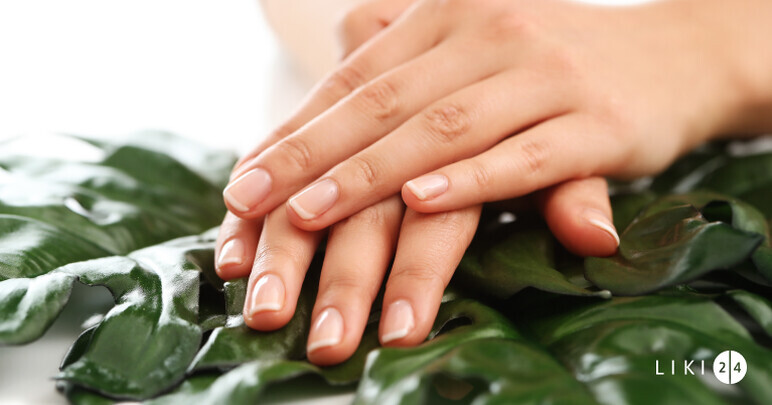Ceai de Sunătoare, 50g, Dacia Plant
Sunatoare



Secretele unei protecții solare fiabile: Cum să menținem tinerețea pielii


Principiile de bază ale unei digestii sănătoase: ce ajută la menținerea sănătății stomacului


Proteine pentru creșterea masei musculare: alimente cu conținut ridicat de proteine, alimentație corectă

Descrierea Sunatoare
Informațiile din secțiunea Întrebări și răspunsuri au fost create de echipa Liki24.co.uk și se bazează pe prospectul oficial al producătorului.
Sunatoare, cu denumirea științifică Hypericum perforatum, cunoscută și ca pojarniță în denumirea populară, este o plantă erbacee cu multe proprietăți, dintre care cele mai cunoscute sunt proprietățile calmate și antidepresive. Cel mai cunoscut mod de consum este cel de ceai de sunătoare, dar sunt disponibile și tincturi de sunătoare.
Cum arată Sunatoare?
Sunatoare sau pojarnita, este o plantă a cărei tulpină dreaptă are în medie 30 de centimetri, dar poate atinge 1 metru în înălțime. Tulpina este ramificată superior și are consistență mai dură, ușor lemnoasă inferior. Florile, galbene se află în vârful tulpinii și a ramurilor, stând grupate. Florile de sunătoare au cinci petale grupate în formă de stea. Florile sunt cele responsabile pentru beneficii și sunt cele consumate atunci când facem ceai sunătoare. Perioada de înflorire durează din iunie până în septembrie, iar după culegere, se usucă în locuri uscate și aerisite, în strat subțire. Frunzele au formă ovală.
Ce beneficii are Sunatoare?
Ceai de sunătoare beneficii pentru starea de emoțională
S-au descris pentru sunătoare beneficii cel mai mult în sfera bunei stări neruo-psihice, pentru efectul său calmant. O meta-analiză (reprezintă integrarea mai multor studii, într-un singur studiu, pentru a trage concluzii mai puternice) realizată de Ng et al, arată pentru sunătoare beneficii în ameliorarea simptomelor cauzate de depresia ușoară. Unii autori descriu efecte similare cu medicația antidepresivă (inhibitori selectivi ai recaptării serotoninei), însă pentru atingerea acestui efect este necesar un consum zilnic de ceai de sunătoare, pe o perioadă lungă, de ordinul săptămânilor. Astfel, sunt menționate pentru ceaiul de sunătoare beneficii în perioadele de surmenaj, stres, agitație, și irascibilitate, cât și în atacurile de panică sau de anxietate, având un efect calmant.
De asemenea, unele studii sugerează pentru ceaiul de sunătoare beneficii în calitatea somnului, prin stimularea producției de melatonină.
Ceai de sunătoare beneficii pentru sistemul digestiv
Sunatoare sau pojarnița acționează la nivelul sistemului digestiv prin protejarea mucoasei gastrice împotriva factorilor iritanți. De asemenea prin stimularea producerii și eliminării de bilă ajută la procesarea grăsimilor din alimentație și descompunerea lor în substanțe ce pot fi utilizate de organism. Sunatoare are beneficii și în durerile intestinale prin reducerea spasmelor la acest nivel și normalizează.
Ceaiul de sunătoare beneficii în sindromul premenstrual
Proprietățile calmante ale florilor de sunătoare își regăsesc utilitatea și în simptomele cauzate de sindromul premenstrual (iritabilitate, sensibilitatea sânilor, balonare, apetit modificat pentru alimente procesate).
Ceaiul de sunătoare beneficia în menopauză
Unii autori consider că Sunatoare ar putea fi benefică în reducerea bufeurilor asociate cu intrarea la menopauză.
Cum se consumă Sunatoare?
Ceai sunătoare- este cel mai comun mod de consum al sunătoarei, pentru a te bucura de beneficiile acesteia. Este preferabil ca ceaiul să fie consumat seara, după o infuzie de 10-15 minute.
Există de asemenea și combinații fixe care asociază Sunatoare cu oligoelemente adjuvante implicate în sănătatea sistemului nervos, așa cum este magneziul sau ginsengul.
Care sunt contraindicațiile sunătoarei?
Persoanele care urmează tratamente cronice (de exemplu pentru colesterol crescut, tensiune, antidepresive, benzodiazepine, chimioterapice, medicație pentru HIV etc), trebuie să se adreseze medicului curant înainte de a începe să consume sunătoare, pe termen lung, întrucât Sunatoare interacționează cu o gamă largă de medicamente.
De asemenea, consumul de sunătoare poate agrava simptomatologia la pacienții cu tulburare bipolară și boala Alzheimer, Schizofrenia. La pacienții diagnosticați cu depresie majoră, consumul de sunătoare poate produce impulsivitate.
Pot consuma sunătoare în sarcină și alăptare?
Dacă sunteți însărcinată este de preferat să evitați consumul de sunătoare, mai ales pe termen mediu-lung. Unii autori afirmă ca aceasta poate favoriza apariția malformațiilor congenitale.
Nu se recomandă consumul de sunătoare pe perioada alăptării întrucât sunt descrise apariția colicelor, sau stărilor de agitație sau somnolența la copil.
Сaracteristicile
| Categoria | Vitamine și Suplimente, Sănătatea sistemului Hepato-Biliar, Sistemul Biliar, Sistemul Cardio-Vascular, Sistemul Nervos, Anti-stres, Insomnie, Dietă și Nutriție, Băuturi, Ceaiuri, Extracte din plante, Promoții, Tensiune arterială, Oferte 1+1, Anxietate, Kit-uri utile |
| Brand | Alevia, Cosmo Pharm, Dacia Plant, Dvr Pharm, Fares, Favisan, Herbagetica, Hypericum Impex Srl, Pro Natura |
| Tip produs | Capsule, Comprimate, Soluție |
Recenzii
A vedea totEvaluarea medie este %s pe baza %s recenzii

Sunatoare, 60 comprimate, 1+1, Dacia Plant
Produs bun, pare destul de eficient și, în general, linia de produse oferită de acest brand este foarte bună

Ceai Sunătoare iarbă, N148, 50 g, Fares
Foarte bun calitate preț!

Sunatoare si Ginseng, 60 capsule, Pro Natura
Un antistres naturist eficient. Fara efecte secundare. Recomand.

Sunatoare si Ginseng, 150 capsule, Pro Natura
Recomand. Un antistres naturist eficient.

Sunătoare, 60 comprimat, Dacia Plant
Funcționează pentru toată lumea

Ceai de sunatoare, 40 plicuri, Alevia
Produs natural, calmant pentru stomac.

Ceai de Sunătoare, 80 plicuri, Fares
Produs natural, calmant pentru stomac.

Sunatoare, 60 comprimate, 1+1, Dacia Plant
Produs bun, pare destul de eficient și, în general, linia de produse oferită de acest brand este foarte bună

Sunătoare, 60 comprimat, Dacia Plant
Funcționează pentru toată lumea

Ceai de Sunătoare, 50g, Dacia Plant
Recomand ceaiul St. John's Wort tuturor, tineri și bătrâni deopotrivă!

Ceai Sunătoare iarbă, N148, 50 g, Fares
Foarte bun calitate preț!

Ceai de sunatoare, 40 plicuri, Alevia
Produs natural, calmant pentru stomac.

Ceai de Sunătoare, 80 plicuri, Fares
Produs natural, calmant pentru stomac.

Sunatoare si Ginseng, 60 capsule, Pro Natura
Un antistres naturist eficient. Fara efecte secundare. Recomand.

Sunatoare si Ginseng, 150 capsule, Pro Natura
Recomand. Un antistres naturist eficient.





































